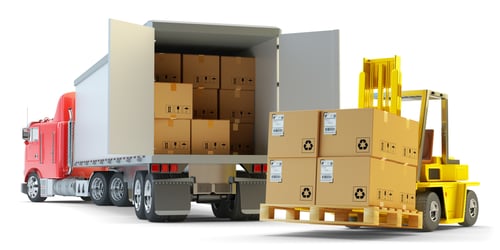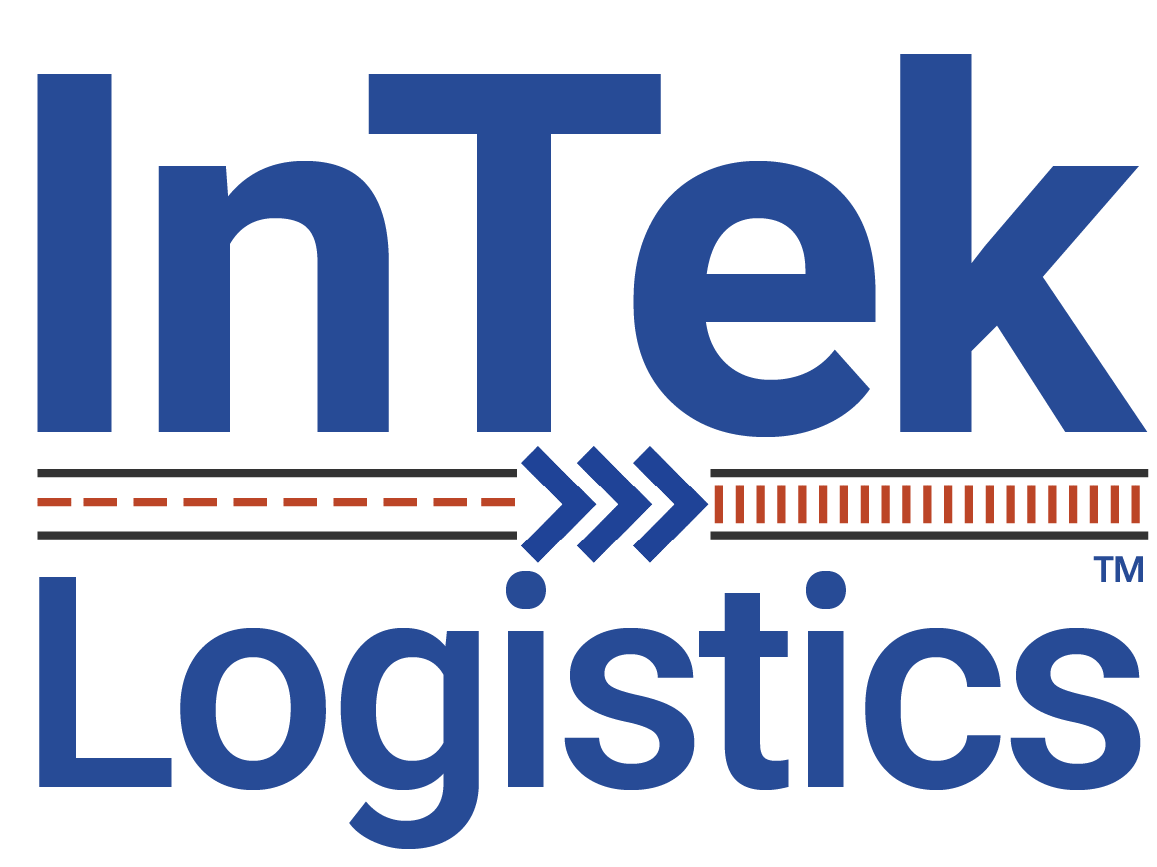
Chapters

Managing transportation of your products or goods from your warehouses to their final destination can be a time-consuming and frustrating process. Instead of focusing on your business, you’re busy looking for transportation partners, planning shipment routes to ensure deliveries arrive on time, tracking shipment progress, and fielding customer service calls when things go wrong. Wouldn’t it be nice to take those responsibilities off your shoulders and hand them to a partner you could trust?
Managed transportation allows you to do just that. You can outsource transportation-related processes to an experienced transportation advisor who takes on these responsibilities and delivers better outcomes for your business. Think of it like outsourcing IT services. You could either pay the high cost of having an IT team on staff, including covering their salary, benefits, equipment, and more, or you could outsource these responsibilities to an IT service provider.
Instead of devoting your own valuable time or your employees’ time to transportation management, you can turn to a managed transportation service provider to take care of this aspect of your business.
What exactly does a managed transportation service provider do?
- Procure - Service providers procure shipping partners to meet your freight needs. They start with the RFP and bid response process. Then, they assess carrier compliance and management capabilities, finding the carrier that is both reliable and able to meet your capacity needs.
- Rate - Managed transportation services providers work hard to ensure you get the best rate for every shipment. Once they have procured bids for your shipments, they assess the rate for each bid and determine which option is best for your needs. They rate engines for all modes of transportation and manage customer allowance. They also oversee spot quotes, ensuring you always get the best rates for every shipment.
- Plan - Next, the managed transportation service provider plans your shipment. This involves determining the mode and route that is the best fit for your needs. They optimize both inbound and outbound shipments, ensuring the decisions they make are the most efficient. Managed transportation partners also evaluate what-if analytics during this step, hypothesizing the results of each shipping scenario to determine which option is the most streamlined.
- Execute - Once a shipment transportation route is planned, the service provider manages execution of the shipment. This involves load creation and booking the shipment with the transportation company. They also track carrier moves throughout the process, and handle any OS&D (over, short, and damaged) issues that may arise. The service provider monitors the execution of your shipment from start to finish.
- Settle - Finally, once the shipment has arrived, the service provider acts as your proxy to settle the bill for the shipment, which also includes the FSC (fuel surcharge) and accessories charges.
.jpeg?width=500&name=Managed%20Freight%20Laptop%20(1).jpeg) They assess the freight to ensure it was all delivered in satisfactory condition, and once everything has been verified, they issue payment to the transportation vendor. In addition to payment, they also manage your invoices and handle any claims of incorrect, late, lost, or damaged shipments.
They assess the freight to ensure it was all delivered in satisfactory condition, and once everything has been verified, they issue payment to the transportation vendor. In addition to payment, they also manage your invoices and handle any claims of incorrect, late, lost, or damaged shipments.
The entire transportation process can be a complex one, but with the help of managed transportation services, you can avoid these hassles and trust them to an experienced partner. You’re the expert on your business, so that’s where your efforts and attentions should be focused. When you hand off the transportation responsibilities to the experts in that industry, you’re sure to get positive results.
Now, let’s look at another tool that can be used to streamline the transportation process even further: transportation management systems.

![]()
Ebook: Comprehensive Guide on Managed Transportation
Download a free copy of our eBook "Comprehensive Guide on Managed Transportation" to discover how managed TMS will add capacity, reduce costs and improve logistics performance.
A study put out by the Aberdeen Group found 83% of companies interviewed have become aware of the cost and service impact transportation has on the overall supply chain performance of their company and see transportation as more than just an isolated budget line item to be monitored. The strategy many shippers have taken to change results for the better is bring a managed transportation service strategy through a well-respected logistics service provider.


For any company that ships freight – like a manufacturer or a distributor or any other company – a transportation management system can add a lot of value to your processes. Transportation management systems (TMS) are software solutions designed specifically to streamline shipping processes in the transportation industry.
At times, shipping can be complicated, especially if you’re using different modes of freight transportation, like planes, trains, or freight trucks. Shipping is streamlined when you use TMS to plan, manage, and execute shipments. Whether you’re shipping a single parcel, pallet or 20 tons worth of your products, a TMS can identify the fastest cost-saving options for shipment.
A transportation management system solution also improves numerous aspects of your business through enhanced functionality. It can integrate with your ERP (enterprise resource planning) software or your warehouse and supply management software. Integrating a transportation management system into your business carries benefits far beyond making shipments faster.
Here are a few ways implementing a transportation management system option to manage your shipping improves your bottom line.
1. Access to Real-Time Data
Data provides powerful insights into the efficiency of your business. However, manually planning and managing shipments makes it nearly impossible to gather and analyze data. Using TMS tools, however, makes data easier to collect and evaluate. With data generated from your TMS, you can identify areas where your efficiency could be improved. You can predict potential problems, taking proactive steps to eliminate impediments, and you can improve the overall process of shipping your business products.
A TMS also ensures that you’re not just working with real-time data, but that you’re also working with accurate data. Through integration with your ERP or other software systems, data is being collected directly from the source. Manually tracking and analyzing data is a process often prone to human error. Dragging and dropping numbers from one spreadsheet to another isn’t just an error-prone process; it’s a tedious one. With a TMS, data is imported from the source solution, so you know you’re looking at numbers you can trust.
2. Improvements in Customer Service
Satisfied customers make for a profitable business. Unfortunately, when you’re shipping products, there’s a lot that can go wrong and those issues can lead to customers being unhappy with your services. You’ve heard the problems before:
- A delivery was late
- A delivery was damaged
- The quantity was incorrect
- The delivery was lost altogether
Any of these issues could lead to a dip in customer satisfaction, which in turn could potentially lead to a loss in business.
When you use a Transportation Management System, however, you can avoid many of these issues. Your shipping processes become more reliable, and you can provide the customer with precise information about where the shipment is and when it is expected to be delivered. Customers will also be pleased with lower shipping costs, as a TMS streamlines the entire process. Through greater customer satisfaction, you can also increase your recurring revenue since customers will know that your delivery processes are ones they can trust. Additionally, you will minimize the time spent on customer service engagement when you don’t have angry customers calling your business all day.
3. Maximizes Warehouse Efficiency
Do you feel like you neglect your warehouse due to all the time you spend managing your transportation processes? With a transportation management system, you can greatly increase your warehouse efficiency. First, you’ll eliminate the extra time spent on planning shipments, so you can place greater focus on organizing and managing your warehouse. If you have multiple warehouses, that exponentially increases the amount of time you save. And a more efficient warehouse means your space is being used wisely, eliminating the need to invest in more square footage in the future.
Also, if your shipment processes are more efficient, you are optimizing the amount of time you have to store your goods. Getting shipments out faster or streamlining the route that shipments take means you have greater control over when your products get to their final destination. You can minimize the amount of time your products are moved from one warehouse to another, only to sit before reaching their final destination.
4. Reduces Costs and Improves Your Bottom Line
When it comes to shipping freight, especially LTL (less than a truckload), it can be a challenge to identify the most cost-efficient way to get your shipment from point A to point B. Using a TMS in your business gives your visibility into all of your options, from the best routes to the fastest delivery times. You can also see options for shipping LTL at the lowest costs, helping you better plan future shipments. Also, using problematic transportation services can lead to high costs. Even if a transportation company has the lowest costs, they may have a history of losing shipments.
What you save with the low rates doesn’t offset the value of the products you lost.
With a TMS, you can identify which shipping partners offer the highest value at the best cost. Overall, having a transportation management system increases your profitability through greater efficiency in your operations. Your employees are working on high-value projects instead of exerting energy managing freight. Your customers are happier with your services thanks to minimized costs and reliable shipping. Your warehouses are used more efficiently, and you can build a positive reputation for your business.
5. Empowers You to Meet Your Business Goals
Do you want to expand your business, reaching markets in new regions or states? While you may think you don’t have the time or resources to make your goals a reality, a TMS can greatly improve your chances. When you’re more profitable and your processes are streamlined, you have access to new funds to dedicate to expansion.
Also, when you eliminate manning freight from your to-do list, you have more time to dedicate to these high-value endeavors. You can build your business, increase sales, and meet your long-term objectives with ease. Through automation, the transportation aspect of your business isn’t a burden anymore.
The transportation management system benefits are numerous, and can have a major impact on the long-term success of your business. With a minimal upfront investment, a TMS pays for itself in the amount of increased capital, optimized processes, and time you can put back into your schedule. Eliminate unnecessary stress and adopt a TMS you can rely on.
However, before you can simply search for a TMS solution online, it’s important to understand how this factors in with managed transportation services, and how managed services and a TMS work together to deliver better outcomes for your business.

While the prospect of taking transportation responsibilities off your shoulders might be an enticing once, do you worry that it will be a challenge to convince C-suite leaders in your company to invest in a partnership with a transportation management service provider? Because this is such a vital aspect of your business, it’s understandable that many people want to keep these responsibilities in-house. However, that’s one of the main reasons why you should outsource this aspect of your business – it’s too crucial to be done inefficiently or incorrectly.
In this section, we’ll take a closer look at some of the high-value reasons to trust your shipping and freight management to a transportation service provider. These major, positive impacts can be compelling reasons you can present to leaders in your business.
Why You Should Outsource Your Rate Management and Negotiation
Cost savings for your business equates to higher profits for you and cost savings for your clients. When you trust a managed transportation service provider to negotiate your rates for you and secure the best ones, you’re sure to get the greatest value for your investment.
In many cases, companies simply accept the lowest rate they receive because they don’t have the time or resources to negotiate or search for the best one. So, how does partnering with a service provider to manage rates work in your favor?
The service provider you choose will be an expert in load planning, and using a TMS, they can keep track of the size of shipments, their planned delivery dates, final destinations, and more.
Consolidated freight holds other benefits beyond cost savings, too, like:
- Faster delivery rates - Because shipments are consolidated into fewer deliveries, this means transportation vendors don’t have to drive back and forth for multiple shipments
- Improved dock efficiency - Fewer loads mean less dock traffic both at your business and your freight’s final destination
- Reduced environmental impact - Through consolidation, you reduce the number of trips required to get your shipments from their starting point to their destination. This reduces the number of trucks on the road and the amount of fuel required to power other modes of transportation
Why You Should Outsource Your Freight Audit and Pay.jpg?width=500&name=Container%20Ship-01%20(1).jpg)
If you have managed freight audit and pay in the past, you know it can be a nightmare. It involves a lot more than simply sending a check to the transportation company. Paying an invoice or procuring payment can be one of the biggest challenges that come with transportation management.
Here are some common challenges associated with freight audit and pay:
- Sheer volume of invoices - With every shipment comes an invoice that needs to be confirmed, processed, and paid
- Paperwork backup - Verifying charges can be time consuming, especially as the volume of shipments increase
- Carrier discrepancies - While some carriers may be thorough in the information they provide about each shipment, others are not. This can lead to potential questions and possible errors
- Complex freight rates - Wouldn’t it be nice if carriers just charged a flat rate for all shipments? Instead freight rates are complex, with a variety of FSC and accessory charges
- Inefficient approval processes - Often, invoice payment must be approved by numerous parties. This can lead to a bottleneck in payments or laborious approval processes
On average, the invoice error rate in the transportation industry is between 5% and 8%. With every error comes lost time and lost income. With a managed transportation service provider, however, you can reduce errors and avoid the numerous challenges listed above. These companies can devote a tremendous amount of time to freight payment and audit, an amount of time you likely can’t spare.
Remember, it’s vital that you choose a service provider who works with companies of all sizes. The freight audit and pay challenges of small companies vary greatly from the challenges that large companies face. For example, a late payment to a small company could hold up their entire production process as they wait for this influx of revenue. On the other hand, the sheer number of invoices that either need to be paid or require collection of payment for a large company can be overwhelming and a major task to manage. Whether you represent a large company or small, it’s crucial that you discuss how the managed transportation service providers you’re considering can accommodate your needs.
It starts with rate procurement. A service provider has the time to parse through numerous RFPs, then combine it with real market data to benchmark the rates and find the best option for your business. They are probably also familiar with the different transportation vendors, so they know which ones have a reputation for great service and reliability and which ones you should steer clear of. And, they likely have relationships with transportation vendors, which means they can negotiate better rates based on a history of work the two companies have done together. Additionally, they look beyond the prepaid-and-add profit center companies to smaller transportation partners which provide better service at a lower cost.
As we mentioned above, the lowest price isn’t always the best price. If a low-cost carrier damages a shipment valued at $25,000, it’s not likely that the saved shipment costs will outweigh the damage. At the end of the day, it’s more important that your shipments are on time and reliable. This will increase your customer happiness and minimize the risk of potential shipment issues.

Now that you have a comprehensive understanding of the benefits of both managed transportation and transportation management systems, let’s explore how the two work together to improve your business’ transportation processes and your bottom line.
Consolidation of Freight
In terms of both inbound freight and outbound freight, the greatest cost savings result from the maximum amount of freight being transported in the fewest number of shipments. Optimizing how freight is consolidated manually or using your own employee resources to manage this can seem nearly impossible. That’s why it’s wise to trust this process to a managed transportation service provider who will use a TMS to consolidate freight for greatest efficiency.
Optimized Resource Management
Planning plays a valuable role in the work that your managed transportation service provider does. Using a TMS, they can plan both inbound and outbound shipments, allowing you to better plan your own resources. Loading and unloading shipments at your docks require strategic planning. To streamline this process, your service provider can communicate to you exactly when shipments will leave and arrive, so your employees aren’t waiting on transportation vendors or are left unprepared when the vendor arrives.
Consolidated freight holds other benefits beyond cost savings, too, like:
- Faster delivery rates - Because shipments are consolidated into fewer deliveries, this means transportation vendors don’t have to drive back and forth for multiple shipments
- Improved dock efficiency - Fewer loads mean less dock traffic both at your business and your freight’s final destination
- Reduced environmental impact - Through consolidation, you reduce the number of trips required to get your shipments from their starting point to their destination. This reduces the number of trucks on the road and the amount of fuel required to power other modes of transportation
Improved KPIs
Key performance indicators (KPIs) allow you to take the pulse of your business, determining how healthy it is or identifying potential problems that need to be addressed. Improving KPIs is a goal that many businesses have, but due to the demands of day-to-day operations, KPIs often get lost in the mix.
However, when you trust your transportation needs to a managed service provider, they will use a TMS to not only track your KPIs but also identify ways to improve them. One of the initial challenges companies encounter when the conversation about KPIs comes up is a lack of visibility into performance. Tracking data, especially transportation efficiency data, using manual processes of the past was inefficient, tedious, and prone to error. Using a TMS option, as we mentioned earlier, makes data tracking and analysis far easier. Transportation management system software will track your data through integration with other software solutions, allowing your service provider to track some critical KPIs, including:
- Shipment speed
- Cost per shipment
- Frequency of shipment damage
- Frequency of late pickups and deliveries
- Frequency of lost deliveries
- Warehouse space use efficiency
- Transportation vendor fuel efficiency
Using the knowledge gathered from data analysis, your managed transportation service provider will make adjustments to your transportation processes on their end or make recommendations on how processes can be improved on your end. They will regularly assess these KPIs for you, leading to constant improvements for your business.
Increase in Cash Flow
Cash flow is the lifeblood of your business, but late payments from customers or being overcharged by vendors reduces your cash flow and eventually puts your business in jeopardy. That’s why you need a way to reduce the order-to-cash timeframe. The best way to make this a reality and increase your cash flow is to partner with a management transportation service provider. They will use a TMS to optimize your shipment processes for rapid shipments, faster payments, and greater visibility.
When your products are taking the fastest route to their final destination, you’ll receive payment from customers faster, too. For example, if your service provider uses a TMS to map out the most efficient route for a shipment, you can reduce shipping times by days or even weeks. That means the check from your customers will come faster, as well.
Increasing your cash flow visibility is valuable, as well. If your service provider can accurately plan shipment costs and manage your invoices with accuracy, you will be able to tell exactly how much money is flowing in and out of your business.

With a thorough understanding of the value a managed transportation service provider holds for your business, you’re ready to start your search for the right partner. In this section, we’ll look at some of the best service provider options on the market and how to choose the best option for your company’s specific needs.
Managed Transportation Providers to Consider
InTek Logistics
Location: Indianapolis, Indiana
Founded: 2003
Uber Freight
Location: Frisco, Texas
Founded: 2000
Redwood Logistics
Location: Chicago, Illinois
Founded: 2001
Transportation Insight
Location: Hickory, North Carolina
Founded: 2010
TMC - a CH Robinson Company
Location: Chicago, Illinois
Founded: 1999
e2open
Location: Holland, Michigan
Founded: 1972
Ryder Logistics
Location: Miami, Florida
Founded: 1933
Each of these managed transportation service providers has different strengths that could make them the right or wrong fit for your company. In the next section, we’ll explore how to select the best service provider for your business.

Trusting an integral aspect of your business operations like transportation management to an outside provider can make you feel a little apprehensive. And choosing the right provider can be a challenge, as well. However, when you invest time into finding the right managed transportation service provider for your needs, you’re sure to find a long-term partner who will have a positive impact on your business.
Here are a few steps you should take as you search for the right managed transportation service provider for your business.
1. Make a List of Your Needs
The best way to start your search for a service provider is by evaluating your own business needs. Your needs may not look the same as those of other companies, even ones in your own industry. Consider factors like:
- The volume of freight you need to ship
- Frequency of shipment
- The current size of your business
- Any plans for future growth
- Your budget requirements
Once you have a list of what you want out of this partnership with a managed transportation service provider, you’re better equipped to eliminate any options that don’t fit your criteria.
2. Talk to Numerous Options
No two managed transportation service providers are alike. That’s why it’s important to connect with different options and see what they have to offer. Talk to potential partners about how they can accommodate your shipment needs and budget. Be sure to bring up the list of requirements you made for your search, discussing key points the different candidates.
3. Choose a Provider that can Scale with Your Needs
Your shipping needs today may not be the same as your shipping needs in five years. You want to select a service provider that can both accommodate your business now and facilitate growth in the future. Choose a transportation service provider who has the resources to manage your shipping needs now and in the years to come. You don’t want growth slowed or hindered by a service provider who can’t keep up with the volume or frequency of your shipments.
4. Ask for References
As with any business partner, you should ask for references from other companies who have worked with the transportation management providers you’re considering. These references will be able to provide you with real-world feedback on how a service provider improved a customer’s business. References will also be able to shed light on any potential problems that could arise with the service provider you select.
5. Ensure They’re Experienced
Choosing a service provider with plenty of experience in your industry is vital. Transportation management is a complex process, and navigating different clients, vendors, payments, paperwork, and more can lead to mistakes if you’re not working with an experienced team. Talk to the different vendors you’re considering about how long they have been in business and their experience in the industry. Be sure to choose a partner who is knowledgeable about transportation and the challenges that come with it.
Selecting the right managed transportation provider is an important decision, so as you search for a provider, keep these requirements in mind. When you find a partner who can provide outstanding service and is experienced in the world of transportation, you’ll feel comfortable trusting them with this important aspect of your business.




-1.jpg?width=250&name=Managed%20Transportation%20Basics%20(2)-1.jpg)
-jpg.jpeg?width=250&name=Why%20Managed%20Transportation_%20(4)-jpg.jpeg)

